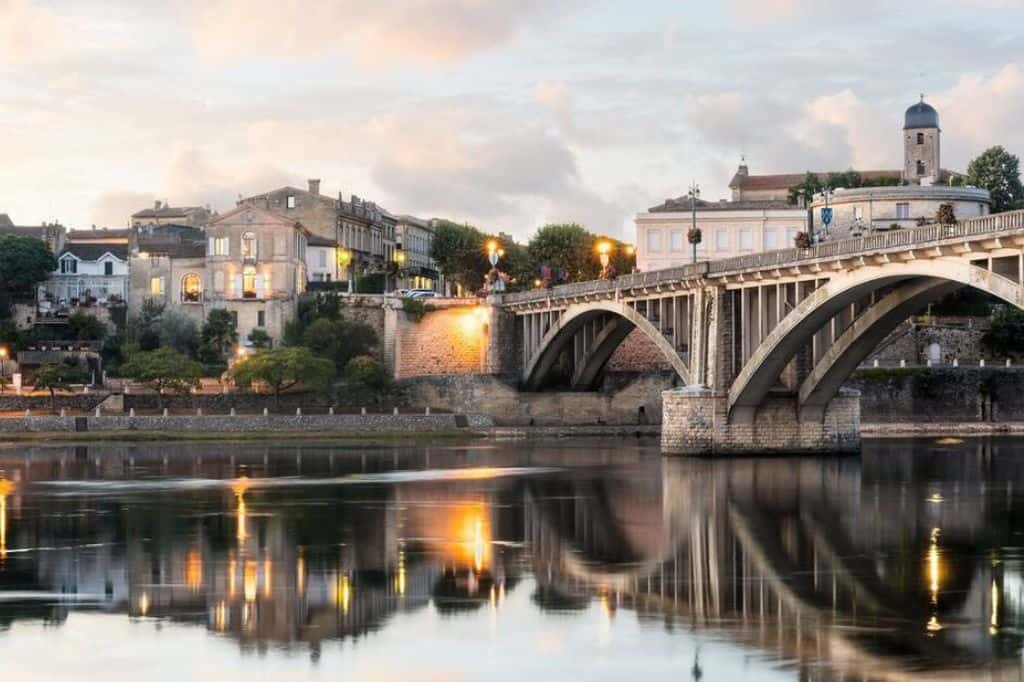
What happens when one member of a couple is ready to fully retire overseas and the other still wants to work? Air Force retiree Valerie Rivera and her husband Ralph, an Army retiree, found a creative solution by obtaining two different residence visas in France.
After Ralph wrapped up his second career in the civil service, the couple agreed they wanted to stay in Europe. His last post was in Germany, but France felt like a better fit for their long-term plans.
In this Q&A with Valerie, part of our Veterans Living Overseas Interview series, she shares why they chose France, how they combined work and retirement, and what life is like in their small riverside village.
What year did you retire from the military and when did you move to France?
Ralph retired from the Army in 1995, then retired (again) from government service in 2024. I retired from the Air Force in 2020.
We moved to France directly upon Ralph’s second retirement in August 2024. We loaded up our car and road tripped from Stuttgart, Germany with our dog and everything else the movers wouldn’t take!
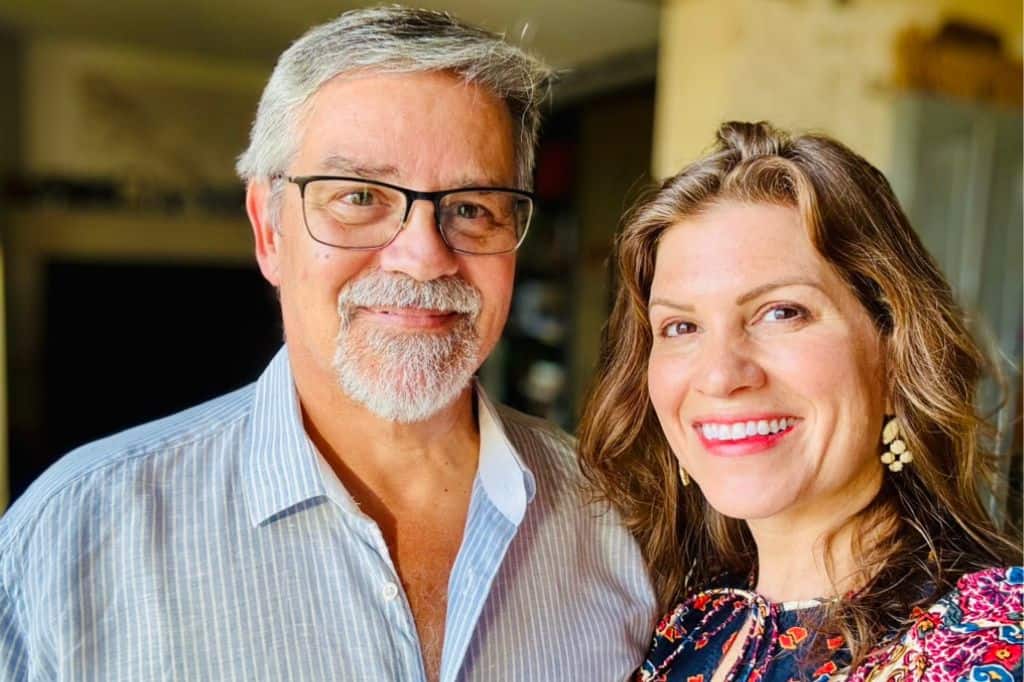
Why did you decide to move to France and how did you choose your city?
We realized we wanted to stay in Europe after moving to Germany and enjoying the lifestyle. Germany was a little too cold and serious for us, so we reflected on all the places we’d visited that felt like a good fit for putting down roots.
France quickly rose to the top of our list. We loved the culture, diversity, and — of course — the food and wine. But after researching affordability, taxation, and healthcare, we were even more convinced.
We wanted to be able to walk to shops and restaurants but also have a yard for our dog. In the end, the best balance was a small town within reach of a larger city — and that’s how we ended up in Castillon-la-Bataille!
It’s got a charming mix of old-world character and everyday convenience, all set along the beautiful Dordogne River.
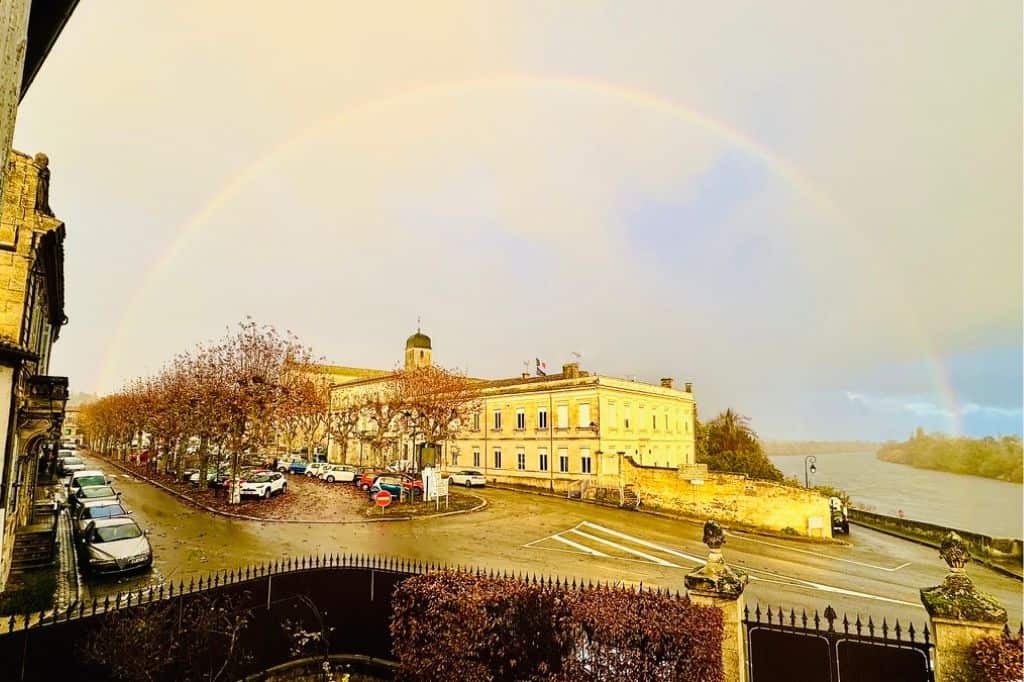
Briefly explain the process for obtaining your visas and the qualifications/restrictions for both.
Ralph applied for the VLS-TS long-stay Visitor visa. This visa doesn’t allow him to work, but he’s happy to live off his pensions and social security. It’s fairly easy to obtain and easy to renew when you have the requisite passive income.
On the other hand, I opted for the VLS-TS long-stay Profession-Libérale visa. I’m 20 years younger than Ralph, and this visa allows me to keep working as a consultant. There’s a bit more paperwork involved, such as a business plan, financial projections, and letters of support, but it’s a great option if you still want to make money.
The income requirement for both visa types is tied to French monthly minimum wage, or le SMIC (salaire interprofessionnel de croissance) It’s currently €1801.80 gross and €1426.30 net.
Here is a link to a much more in-depth blog post about our experience.
Do you speak French? If not, is it difficult to navigate daily life?
I took French for four years in high school, and I really wish I’d taken it more seriously! Still, I’m surprised by what comes out of my brain sometimes after all these years. That said, it takes real effort to reach the level of fluency I want; immersion isn’t enough.
I take classes on Zoom via Lingoda, the best platform I’ve found for language learning. The method reminds me of what I experienced at the Defense Language Institute (DLI): practical, structured, and relevant to everyday life (e.g., describing your neighborhood or going to the doctor).
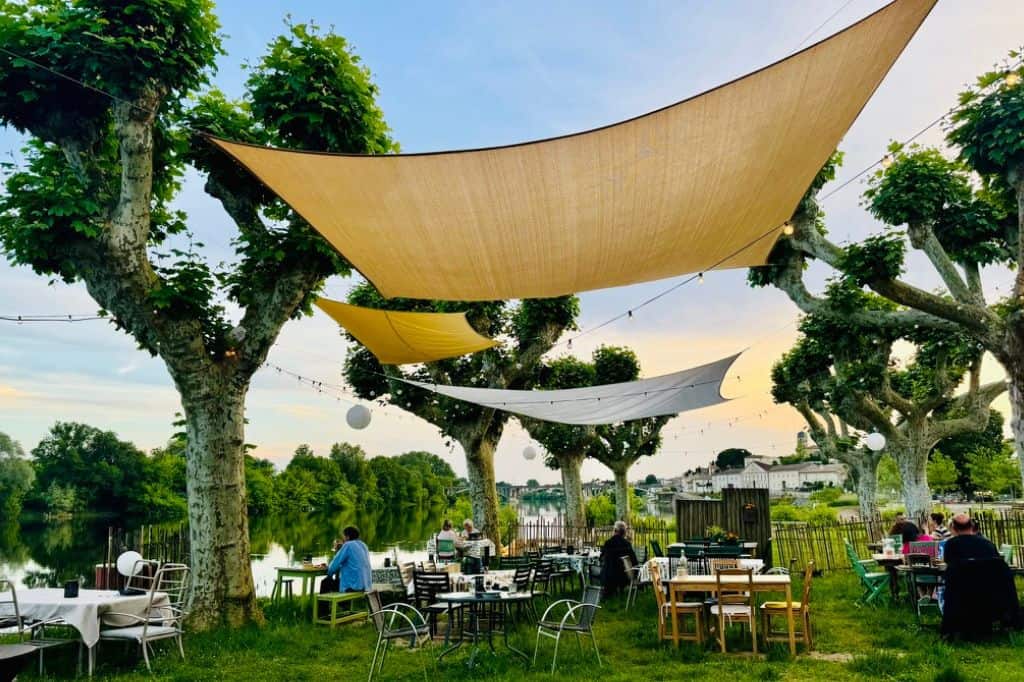
Ralph, meanwhile, has a 5-year Duolingo streak — which earns him bragging rights even if his pronunciation leaves something to be desired!
Navigating daily life definitely gets easier as our French improves. While it’s not common for people to speak English in our small town, everyone has been so gracious — taking the time to understand what we’re trying to say and gently correcting our mistakes.
How does the cost of living in France compare to the U.S.?
Affordability and quality of French real estate was a huge factor in our decision. Outside of Paris, apartment rentals are much more reasonable.
For example, in the town of Libourne, not far from Bordeaux, I’ve seen nicely furnished apartments in the city center on Airbnb for under €1800 per month. A longer term lease on an unfurnished place would cost much less.
It’s also not uncommon to find stately manors in the countryside for well under €500k.
In our case, we splurged on a perfectly renovated historical riverfront property in a small town. We never could have afforded something like this in the U.S.!
| Related Reading: A Veteran and His Family Living in Strasbourg, France
France has been kind to our budget, with 3-course lunches for around €25, and a visit to the doctor for €30 before insurance. For the first year, our phone plan was €10 a month through Free (with no extra charges when going back to the US), and it has gone up to a whopping €20.
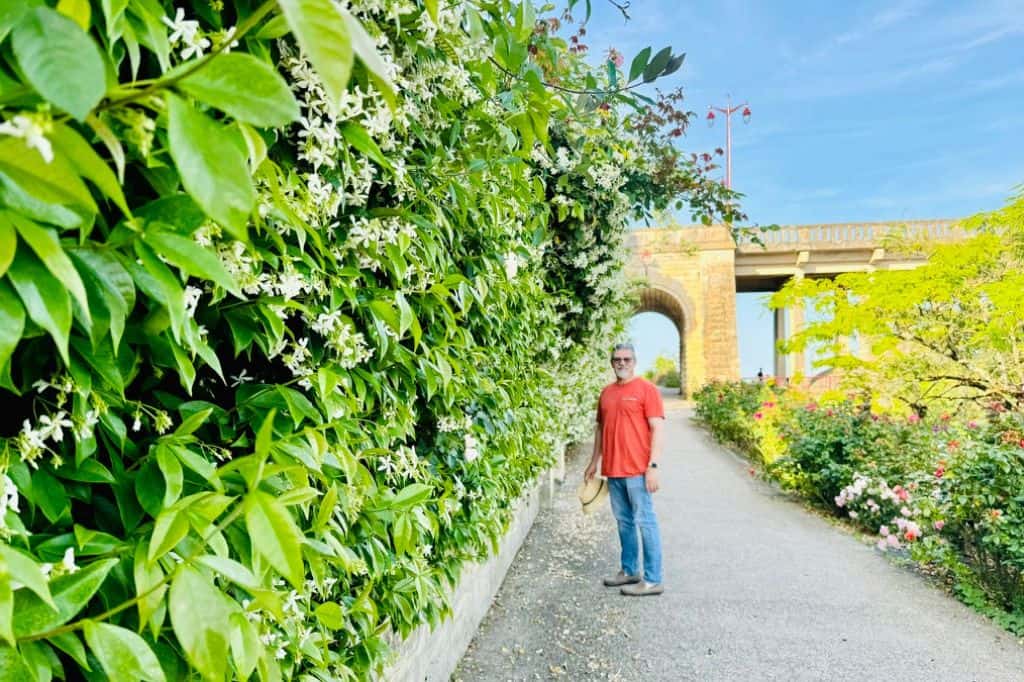
Tell us about health care. Do you have a local insurance plan?
We carried Ralph’s health insurance plan into retirement because it covers us when we travel back to the U.S. and quite frankly, it’s the most generous plan we’ve ever had. It’s a bit more expensive than TRICARE but gives us flexibility and choice.
| Related Reading: How to Use TRICARE While Living Overseas
After 3 months in France, we both applied for the French health card, the Carte Vitale. We swipe the card at doctor’s visits and at the pharmacy.
This takes care of 70% of the cost of our treatments and prescriptions. We pay upfront, and then the money is reimbursed straight back into our bank accounts. Certain health conditions, like diabetes, fall under the list of “Afflictions Longues Durées” (long-term or chronic illnesses) and are reimbursed at 100%.
As with many rural areas, “medical deserts” are something to be aware of, but we’ve been very fortunate to have a doctor in our town as well as a lab. Using the “DoctoLib” app makes it relatively easy to find practitioners and book appointments.
Does France tax your military retirement?
No. Not military retirement, VA disability pay, social security, or TSP/401k distributions. France has the strongest bilateral tax treaty with the U.S. of any European nation.
Tell us about daily life in France!
We live in a small town of around 3,200 people, but we can walk to everything we need: grocery stores, restaurants, shops, even a hardware store and dog groomer. On Mondays, there’s a lively year-round farmers’ market where we inevitably run into friends.
Ralph walks our dog daily. She’s come to tolerate (maybe even enjoy) it now that he brings a ball to play with in the park. The park is a local gem, with fruit trees open to the community, and he’s taken to collecting walnuts to bring home.
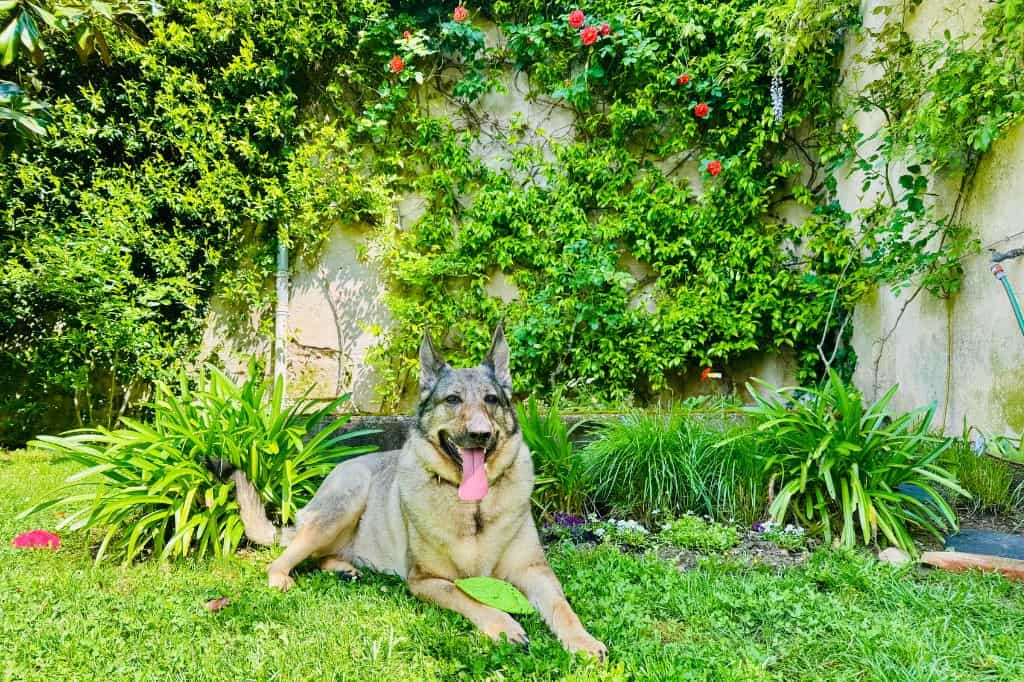
We socialize about three or four times a week, hosting apéros (the French version of Happy Hour) at home or meeting friends at community events like the antique fair or summer festivals. We also get lots of visitors, so it’s not unusual to spend a weekend playing tour guide in Saint-Émilion or exploring nearby vineyards.
Between all that, I’m squeezing in Zoom meetings and the occasional business trip. Our days are full, but in a gentler, more grounded way than before.
Are most of your friends locals or fellow immigrants?
We have been very intentional about making the effort to build friendships with our French neighbors as well as fellow immigrants.
In fact, we had a party for la Fête Nationale (French independence day) in July, and our guests remarked how even the distribution was – and wondered how we met all these people! Since then, it’s been really fun to see how the friendships between everyone have expanded.
Do you feel “accepted” in the local community?
We genuinely do! I think it helps that we live in a small town where it’s easy to get in the thick of things.
Plus, we’ve made the effort to patronize our local shops and restaurants. We want to see small businesses thriving.
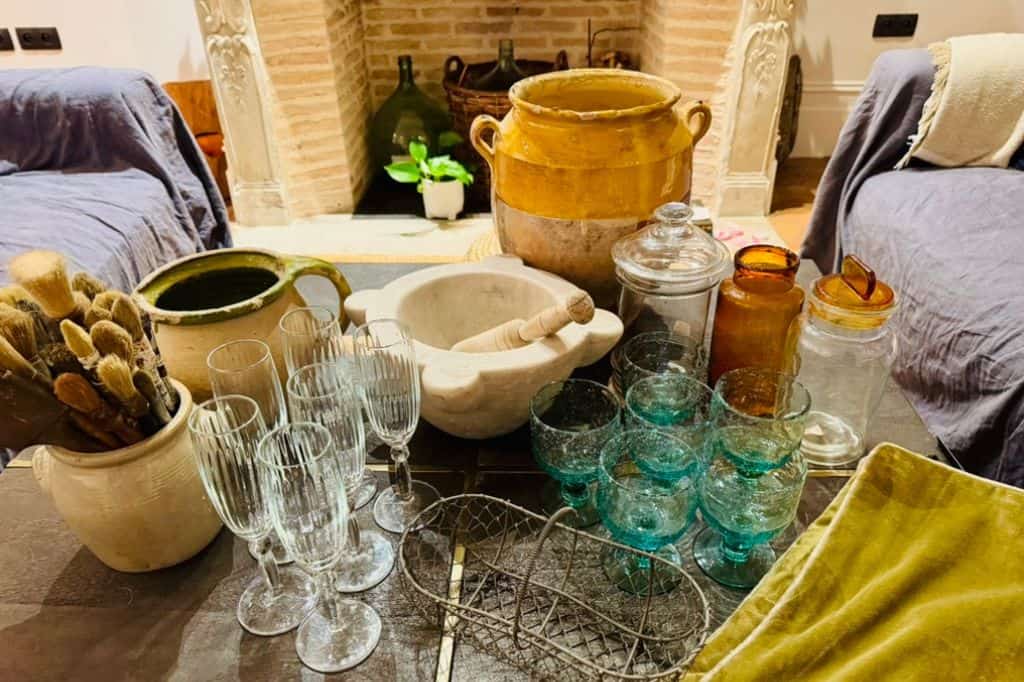
We’ve also joined the local rowing club, and even though we aren’t the best at actually rowing, our club knows we’ll show up to volunteer and hang out.
What do you like about living in France?
Of course, we love the food, wine, and culture. But we also deeply appreciate the values of liberté, égalité, fraternité (liberty, equality, and fraternity) — they reflect a balance between personal freedom and collective well-being that feels right to us.
I also love how much easier it is to make healthier, more intentional choices. I don’t feel the same pressure to work nonstop as I did in Silicon Valley, and it’s harder to find processed food, so we naturally eat better. Life feels designed for people, not productivity, and that’s been such a gift.
What are some of the challenges of living in France?
France is bigger and more diverse than many people realize. Like the U.S., you’ll find everything from seaside villages to snow-capped mountains, and climates to match. It’s worth clarifying your ideal lifestyle before you choose a region — and if possible, take a reconnaissance trip or try a few Airbnbs in different areas.
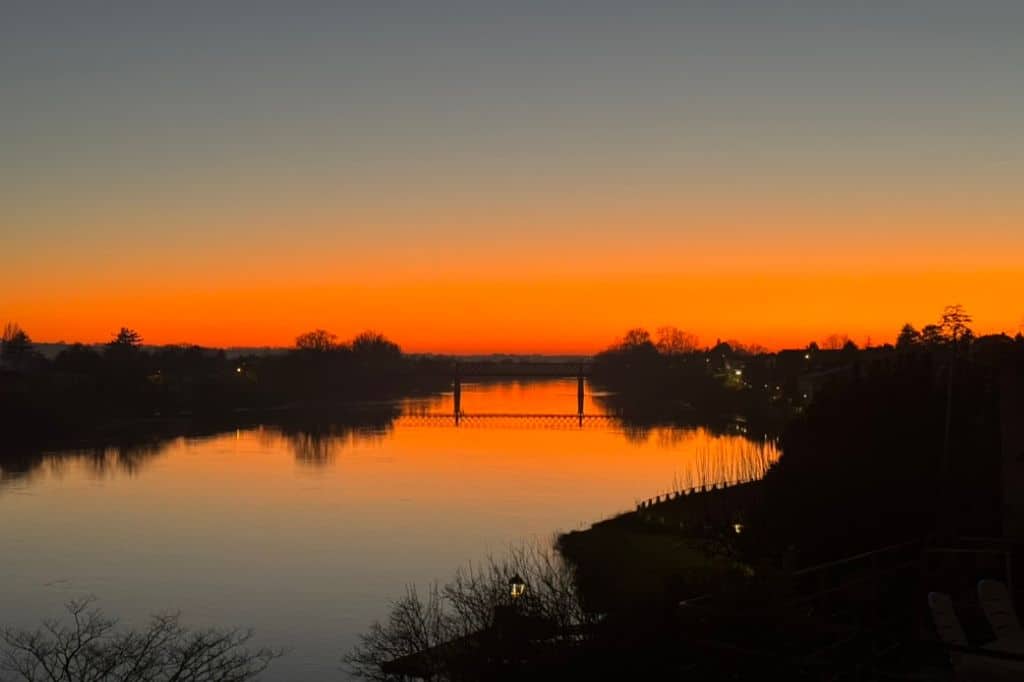
One challenge for Americans is navigating housing and finance. It’s often tough to rent long-term without French income, though there are “guarantee” programs that help.
Mortgages are also tricky. We ended up paying cash for our home after several disappointing offers.
The bureaucracy deserves its reputation; patience (and a printer) are essential! And inheritance tax rules are worth understanding early, ideally with professional advice.
What advice would you give to anyone who is thinking of moving to France?
Immigrating to a new country is a big adventure, and it’s normal to feel overwhelmed at times. Give yourself grace. Very few people are brave enough to do this!
It helps to work backward from your target move date. When will you apply for your visa, list your home for sale, or take your exploration trip? Breaking the process into steps makes it far less daunting.
Start learning French as soon as possible. Speaking the language makes everything easier and deepens your connection once you arrive.
And remember: curiosity, humor, and humility will take you farther than any checklist.

What are your longer-term plans? Do you intend to stay in France for the foreseeable future?
Yes! We can’t imagine living anywhere else. Every day here feels like confirmation that we made the right choice. Not because it’s perfect, but because it feels right for this chapter of our lives.
Interviewee Bio: Ralph and Valerie Rivera are newly minted retirees living in Castillon-la-Bataille, France, a picturesque riverside town near Saint-Émilion.
Ralph retired from the U.S. Army and later from government service, while Valerie retired from the U.S. Air Force after 20 years. She’s now the founder of Take Back Work, a consulting firm that designs leadership retreats and offsites around the world.
Together, they’re navigating life as “delightfully disoriented” expats — learning French, strolling along the Dordogne, and discovering that sometimes the best plan is the one you never intended. Follow along with Valerie at Delightfully Disoriented en France.

excellent article. it covers all aspects of moving to France. Getting a bank account is a must.
Great article and as a frequent traveler to France over the years, I concur with all. Life in small towns and villages away from Paris is a total different experience. The true, authentic, artery-clogging, soul-nourishing heart of France beats out in the small towns and villages. Forget the $15 coffee; come to the village where the boulanger knows your order before you even reach the counter, and the bread is so fresh it’s still whispering secrets. Life away from Paris is a totally different sport. It’s where the wine is cheaper than bottled water, where lunch is an unhurried, two-hour event treated with the reverence of a religious ritual, and where the only traffic jam involves a farmer on a rusty tractor and a couple of extremely opinionated sheep. You trade the endless queues for endless quiet, the stressed urban sprint for the slow, delicious saunter, and the hurried bonjour for a genuine, twenty-minute conversation with a woman who runs the local tabac and can tell you everything about everyone who has ever lived in the valley. Again, this is a great article about France.